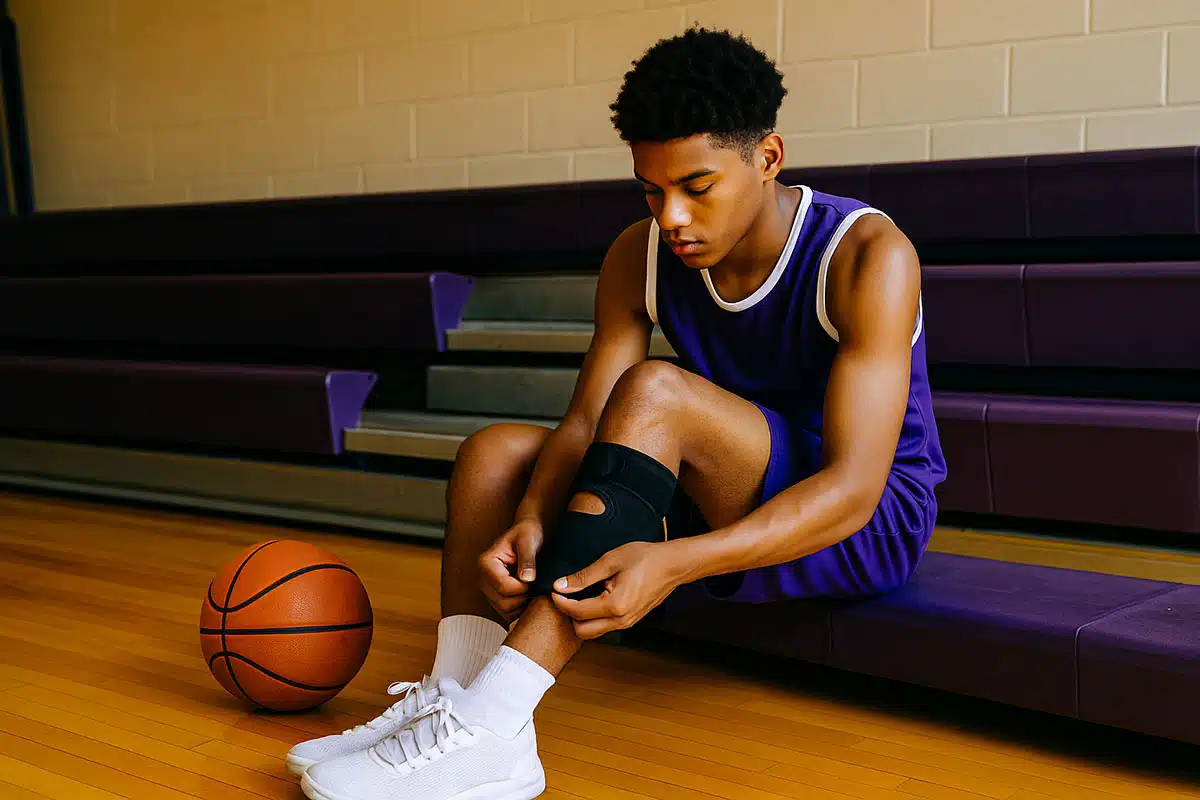
What ADHD Really Feels Like: A Day in the Life of a Distracted Mind
Step inside a child’s mind with ADHD to understand their daily struggles, challenges, and hopes—told with compassion and insight.

A scraped knee or sprained ankle may seem like a rite of passage in youth sports. But while bruises and breaks heal on a timeline, what happens to a young athlete’s mental health after an injury is often left off the scoreboard.
At Pediatric Consultations, we have seen it firsthand. A sidelined player who seems “off” emotionally, a once-confident teen now withdrawn after missing weeks of practice, or a young child questioning their self-worth because they cannot keep up with the team. For kids, especially those already managing ADHD, anxiety or other mental health challenges, an injury can trigger far more than physical pain.
Let’s take a closer look at the hidden impact of sports injuries on youth mental health, and how parents can help their child recover not just physically, but emotionally.
For many kids, their sport is more than just a hobby, it is a big part of how they see themselves. Being a soccer player, a gymnast or a swimmer, it is part of their identity. So when an injury forces a break, it is not just muscles or bones being put on pause, it is self-esteem.
This disruption can be especially tough for teens, who are in a critical stage of identity development. Being separated from their team or losing playing time can lead to feelings of isolation, sadness or even depression. They may worry they are letting people down or falling behind.
For youth who are naturally active or who rely on physical movement to regulate emotions (like many kids with ADHD), the sudden halt in activity can stir up restlessness, irritability or anxiety. The structure of regular practices and games may have been an emotional anchor, and without it, mental health can waver.
We also see increased risk for:
In some cases, this emotional fallout can outlast the injury itself.
Youth already managing mental health conditions often feel injury setbacks more deeply. A child with ADHD, for example, may already struggle with impulse control and frustration tolerance, an injury can amplify those challenges. Similarly, a teen with anxiety might catastrophize the situation, fearing they will never recover or be good enough again.
It is critical for parents and caregivers to validate those fears and emotions while providing practical, compassionate support during the healing journey.
While physical therapy might be scheduled, mental recovery is just as important. Here is how to support the full healing process.
Returning to sports is not just about being physically cleared, it is about rebuilding confidence. Kids often need reassurance that they are not starting over, that progress is still possible, and that their worth is not tied to performance.
At Pediatric Consultations, we believe every injury is an opportunity to strengthen the body and the mind. Whether your child is managing ADHD, anxiety, autism or just feeling discouraged, we are here to walk beside them, and you, through recovery.
Youth sports can be one of the most empowering parts of growing up. But when injuries strike, it is important to remember that healing is not only skin-deep. Pay attention to the emotional signals, and let your child know that sitting on the bench does not mean they have lost the game. It just means they are building strength for their next comeback.
If you are noticing emotional shifts in your child following a sports injury, do not hesitate to reach out. Our team at Pediatric Consultations provides compassionate, expert care for both physical and mental well-being, because every child deserves a full recovery.

Step inside a child’s mind with ADHD to understand their daily struggles, challenges, and hopes—told with compassion and insight.

Learn how screen time affects kids’ mental health and discover realistic, tech-positive habits families can use in 2025.

Due to a sudden serious and ongoing medical issue, Dr. Peter Halas has closed his Pediatric Consultations practice.
Dr. Halas is deeply grateful for the trust, kindness and connection shared with patients and families throughout the years. It has been an honor to care for your children and to be part of your lives.
For any ongoing medical needs or referrals, please contact your primary care provider. Dr. Halas wishes each of you continued health and happiness.